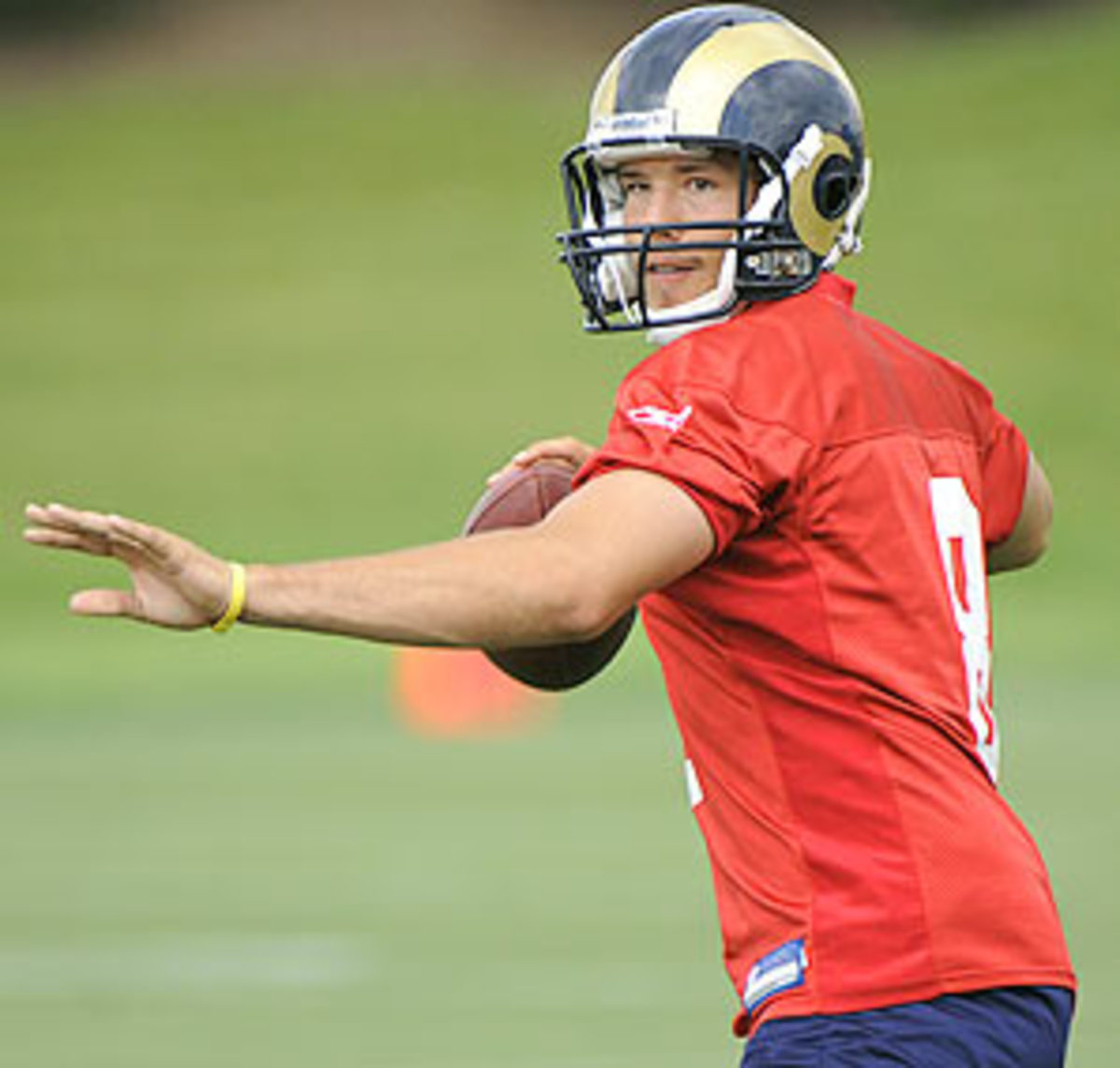The Rule of 26-27-60 helps predict NFL quarterback success or failure
But could a simple formula have warned us of Russell's lack of NFL readiness? And Ryan Leaf's and David Carr's and other failed, high-pick quarterbacks?
Call it the Rule of 26-27-60.
Here is the gist of it: If an NFL prospect scores at least a 26 on the Wonderlic test, starts at least 27 games in his college career and completes at least 60 percent of his passes, there's a good chance he will succeed at the NFL level.
There are, of course, exceptions. If NFL general managers always could measure heart, determination and other intangibles, then Tom Brady would not have been drafted in the sixth round.
But short of breaking down tape, conducting personal interviews and analyzing every number and every snap of every game, remember the Rule of 26-27-60 the next time a hotshot prospect comes down the pike.
Since 1998, these are some of the NFL quarterbacks who aced all three parts of the Rule of 26-27-60: Peyton Manning, Phillip Rivers, Eli Manning, Drew Brees, Tony Romo, Matt Schaub, Kyle Orton, Kevin Kolb, Matt Ryan, Ryan Fitzpatrick and Matt Stafford.
Meanwhile, among the once highly-touted prospects who failed at least one part of the formula: Ryan Leaf, Joey Harrington, Michael Vick, Akili Smith, Tim Couch, Daunte Culpepper, David Carr, Vince Young and JaMarcus Russell.
There are a few notable exceptions to the rule but only by slight margins.Two-time Super Bowl champ Ben Roethlisberger scored a 25 on the Wonderlic, just one point short of the standard of 26. Jay Cutler -- a mixed-bag thus far in the NFL -- scored exactly a 26 on his Wonderlic and had the starts, but completed 57 percent of his passes at Vanderbilt. Joe Flacco, who's been to the playoffs in each of his first two seasons, fell short in the starts category.
How about the quarterback class of 2010? Top pick Sam Bradford aces the rule easily, but the other three high-profile rookie QBs -- the Browns' Colt McCoy, the Broncos' Tim Tebow and the Panthers' Jimmy Clausen -- all fall short on the Wonderlic, although not by much.
It stands to reason why the Rule of 26-27-60 makes the most sense as a quick guide to NFL quarterbacking success, too.
The 26 represents the minimum Wonderlic score required to score a passing grade. Consider some of the lower-scoring quarterbacks drafted since 1998 when it comes to the Wonderlic: Vick (who scored a 20), Akili Smith (26), Couch (22), Carr (24), Young (16, first reported as a six) and Russell (24). All of them have been considered at best under-achievers, at worst busts.
The most notable exceptions to the rule are Brett Favre, who scored a reported 22 on the Wonderlic, and Donovan McNabb, who scored a reported 14.
The 27 represents the minimum number of starts a quarterbacking draft prospect should have had in college to make the grade. Ask any NFL scout if he would rather have 12 games to grade or 27. Playing a lot of games means more opportunity to hone your craft in the heat of battle and gain confidence in your ability to perform under pressure. That translates well to the next level. Oregon's Akili Smith was drafted in 1999 after making just 11 collegiate starts. He ultimately made just 17 starts in Cincinnati.
And how many quarterbacks, like Leaf and Russell, have been drafted based on "upside." That is another way of saying a player couldn't complete 60-percent in college. Do you really think he can do it at the next level?
The exceptions are few. Finding NFL quarterbacks certainly is a science, but it's not rocket science. When in doubt, turn to the Rule of 26-27-60.





